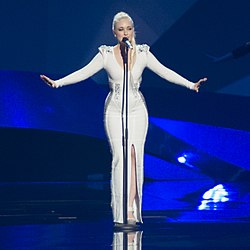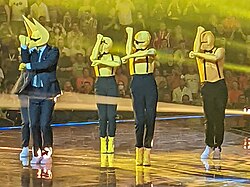| Norway in the Eurovision Song Contest | |
|---|---|
| Eurovision Song Contest | |
 | |
| Participating broadcaster | Norsk rikskringkasting (NRK) |
| Participation summary | |
| Appearances | 63 (60 finals) |
| First appearance | 1960 |
| Highest placement | 1st: 1985, 1995, 2009 |
| Host | 1986, 1996, 2010 |
Participation history | |
| Related articles | |
| Melodi Grand Prix | |
| External links | |
| NRK page | |
| Norway's page at Eurovision.tv | |
| Norway in the Eurovision Song Contest 2025 | |
Norway has been represented at the Eurovision Song Contest 63 times since making its debut in 1960 and has only been absent twice since then. In 1970, the country boycotted the contest over disagreements about the voting structure, and in 2002, they were relegated. The Norwegian participating broadcaster in the contest is Norsk rikskringkasting (NRK), which select its entrant with the national competition Melodi Grand Prix.
Contents
- History
- Participation overview
- Hostings
- Awards
- Marcel Bezençon Awards
- Winner by OGAE members
- Related involvement
- Conductors
- Heads of delegation
- Supervisors
- Commentators and spokespersons
- Costume designers
- Photo gallery
- See also
- Notes and references
- Notes
- References
- External links
Before 1985, Norway's best result in the contest was a third-place with "Intet er nytt under solen" by Åse Kleveland in 1966. Norway's three victories in the contest were achieved by "La det swinge" by Bobbysocks in 1985, "Nocturne" by Secret Garden in 1995, and "Fairytale" by Alexander Rybak in 2009. Norway also finished second at the 1996 contest, with " I evighet " by former Bobbysocks member Elisabeth Andreassen. Norway has finished last in twelve Eurovision finals, of which four times with "nul points". Norway has a total of 12 top-five results in the contest, the latest being a fifth place with "Queen of Kings" by Alessandra in 2023.
















